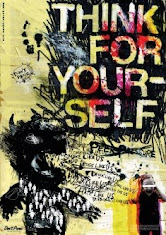
BBC NEWS
Tickled apes yield laughter clue
WATCH APE LAUGHTER--CLICK HERE
New research has given credence to the idea that laughter evolved in a common ancestor of the great apes and humans.
Researchers tickled 22 young apes and three humans and acoustically analysed the laughing sounds that resulted.
Though the vocalisations varied, the team found that the patterns of changes fit with evolutionary splits in the human and ape family tree.
The research in Current Biology also suggests that gorillas and bonobos have some control over their breathing.
Primate researchers have long guessed that many of the social behaviours that are seen in humans have a basis in our primate lineage.
Studies have noted that vocalisations that some apes make while being tickled are similar to those made when they are playing, and acoustically they share some characteristics with human laughter.
"We have various findings showing that human laughter is deeply rooted in human biology, because, for example, it's present in various cultures, in deaf and blind children," explained Marina Davila-Ross of the University of Portsmouth, the lead author of the study.
"So there have been many claims that these vocalisations have a pre-human basis."
To put the idea on a firmer footing, Dr Davila-Ross made more than 800 recordings of the tickle-induced laughter of the apes and infants.
Many of the characteristics of the actual frequencies in the recordings - such as the central and peak frequencies, and the variability of the frequencies within each laugh - were similar across all the subjects.
The differences among the subjects, however, showed how they may indicate a common ancestor. Chimpanzees and bonobos - our closest relatives of the group tended, like the humans, to have longer series of laughs, each made up of shorter calls.
Another component is in the role that the voice plays in the sound of a laugh.
"When humans laugh, they voice stable sounds: that means the vocal folds are moving in a very regular synchronised way," Dr Davila-Ross explained. "We found these acoustic properties also in bonobos."
Orangutans, by comparison, had fewer "vibration regimes" - meaning they could get fewer tones from their vocal cords.
Because the sounds of the most closely related apes matched most closely in the analysis of the laughter, the researchers believe the work is proof of laughter's shared evolutionary origin, followed by adaptation to its form in the species we see today.
"There's a lot of research that has been going on, but this is the first study that has conducted the phylogenetic approach to measure these acoustics and relate them to one another," Dr Davila-Ross.
ANOTHER CLIP--CLICK HERE
One surprising finding was that gorillas and bonobos had bouts of laughter that lasted as much as three times the length of their breathing cycle - suggesting that they exerted some control over their breathing in the process.
Robert Barton, an evolutionary anthropologist at the University of Durham, called the research "fun, but not all that surprising". He said that there have long been suspicions of a shared evolutionary basis for laughter, in a concept researchers call homology.
"It's widely accepted that these emotional expressions are homologous - people have looked at laughter in social contexts in terms of play faces and vocalisations, but no-one has worked specifically on tickle-induced laughter before.
"It's certainly less surprising than the alternative, which would be that it evolved separately and independently in each group," he told BBC News.
"What I think is the interesting question is the function of the behaviour in the different species, and whether it's functionally the same - that would be fascinating," he said.
Dr Davila-Ross said that the answer to that question interested her group as well, and that she is conducting further experiments to address the question.
Story from BBC NEWS:
http://news.bbc.co.uk/go/pr/fr/-/2/hi/science/nature/8083230.stm
Published: 2009/06/04 16:56:07 GMT
© BBC MMIX




0 comments:
Post a Comment